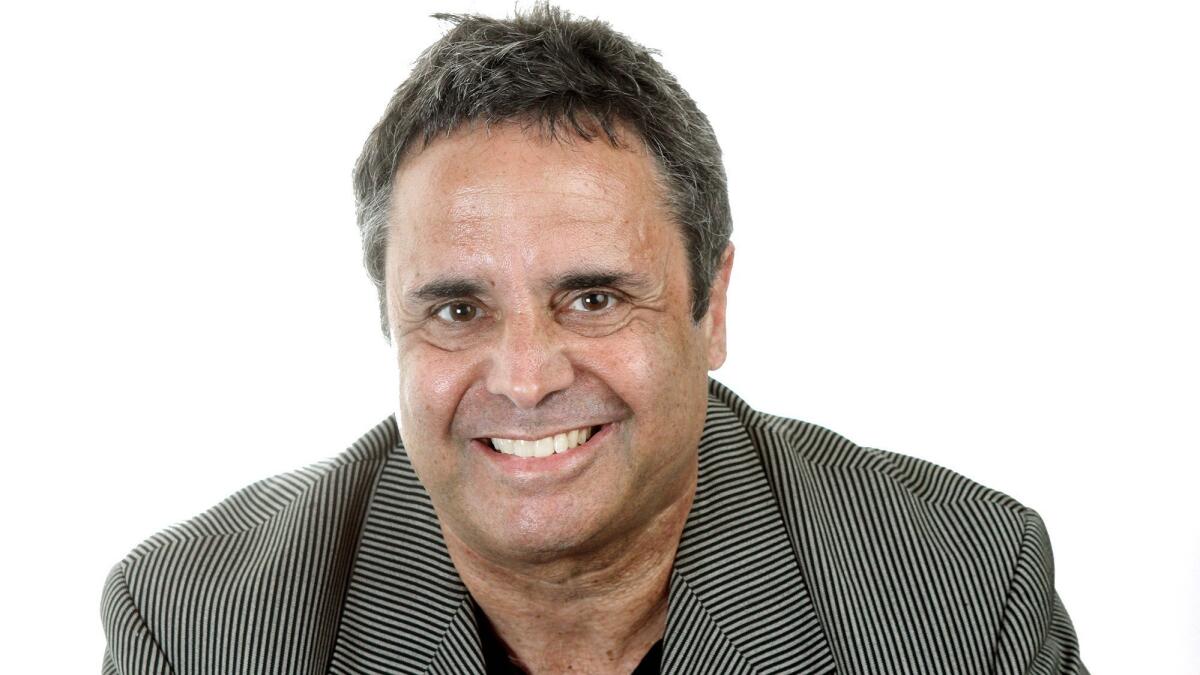Read On: ‘Wonderful Life’ star’s familiar straits

Ray Richmond columnist. Photographed on Tuesday , August 13, 2013. (Roger Wilson/Staff Photographer)
Gather ‘round the newspaper campfire, ladies and gentlemen, and I’ll tell you a classic Christmastime tale of goodness, cluelessness and the common man (or in this case, woman) getting kicked in the teeth by Corporate America.
Our story begins in a little town called Los Angeles, where a guy named Jimmy Hawkins was finding uncanny parallels between his life and his art. If you’ve seen the 1946 Christmas film classic “It’s a Wonderful Life,” you know Jimmy. He played 4-year-old Tommy Bailey, the youngest son of George Bailey (the incomparable Jimmy Stewart). Tomorrow marks the 69th anniversary of the movie’s original release into theaters.
Hawkins was an in-demand child actor in the 1940s, ‘50s and ‘60s and now, at 74, he’s a successful author and producer. For him, “It’s a Wonderful Life” has truly been the gift that keeps on giving. He’s written or co-written four popular books based on it — including a 50th anniversary scrapbook and a trivia compendium — and has positively reveled in the notoriety that being part of such a beloved piece of American cinema hath wrought.
In other words, a big part of the reason Hawkins has had a wonderful life is “It’s a Wonderful Life.” Opportunity meets irony.
But back to why Jimmy was tangling with a crisis that’s straight out of “It’s a Wonderful Life” itself, one that finds the Baileys and Evil Old Man Potter locking horns anew. As we met in a local deli last week, we talked about how his mother, Bette Hawkins, was just four months shy of celebrating her 100th birthday, and yet certain people weren’t exactly treating her with the reverence and respect generally accorded one poised to reach such a hallowed milestone.
It started last April, when a never-used Bank of America checking account belonging to Mrs. Hawkins had become overdrawn due to a $10.65 shortage in her account stemming from an account fee. A rarely used credit card account linked to the checking account for overdraft protection then triggered a $100 transaction processed to the card to cover the $10.65.
This came as a surprise to Jimmy Hawkins, who now exercises power of attorney over his mother’s affairs. By the time the issue came to his attention more than three months later, the uncovered overdraft and $100 “protection” debit had resulted in Mrs. Hawkins getting dinged with a negative credit rating. With interest and penalties as well as the $100, that original $10.65 shortfall had crept up to $195.10 and landed the account in B of A’s debt-collection department, according to Jimmy Hawkins.
“But here’s the thing,” Jimmy Hawkins said to me over lunch. “The exact same day the original overdraft happened, my mother’s Social Security check went into that same account. Yet Bank of America somehow chose to process the overdraft first rather than the SS check for nearly $2,000. It was as if they had planned it.”
Jimmy Hawkins got on the horn with a lady the B of A office in Charlotte, N.C., identified as an “executive escalation advocate,” which doesn’t sound like a position that does much advocating for the customer.
“I explained to this woman that my mother shouldn’t owe anything, but they decided to stick it to her anyway,” he recalled. “I asked why they didn’t process the Social Security check first. Her explanation was, ‘Sorry, that’s the rule’.”
Yes, that’s evidently the rule when there are fees to be collected from a woman who had been a loyal Bank of America customer at the same branch since the 1930s, as Jimmy Hawkins explained.
To make the problem go away, he agreed to pay the original $100 credit card overdraft (but not the $10.65 or other fees) on the condition the bank get on the phone with the credit reporting agencies and repair Mrs. Hawkins’ credit, stat.
No dice, declared the executive escalation advocate.
“I couldn’t believe they were going to let my mother go out of this life with dirty credit after never having even bounced a check in 80 years,” Hawkins says.
Given this outrageous back-and-forth, I rang up the advocate and left two messages in the hope she might cast some clarity on the situation. But I’m still waiting for her to return my call.
--
RAY RICHMOND has covered Hollywood and the entertainment business since 1984. He can be reached via email at ray@rayrichco.com and Twitter at @MeGoodWriter.